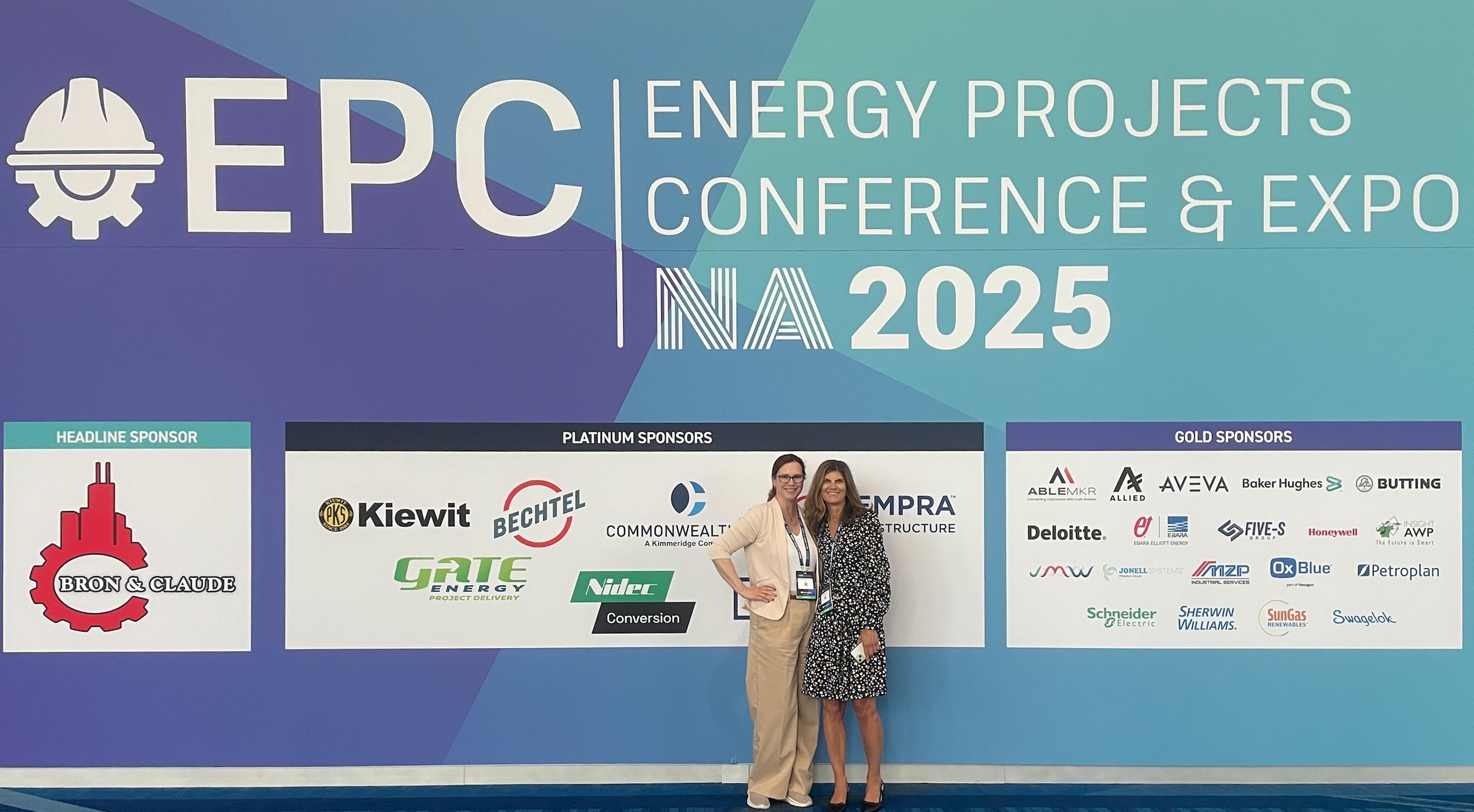6 key takeaways from EPC 2025: What’s shaping the future of capital project delivery
The event brought together industry leaders to share perspectives on the future of engineering, procurement, and energy.



The event brought together industry leaders to share perspectives on the future of engineering, procurement, and energy.
JMJ’s Jennifer McKeon, Camille Ford, and Troy Pierce attended the EPC Energy Projects Conference and Expo in Houston, Texas, June 11–12. The event brought together industry leaders to share perspectives of capital project delivery in energy. While the sessions covered emerging trends and challenges, they reinforced a familiar truth: enduring success depends on attracting and retaining the right people, building trusted relationships, and fostering a culture of collaboration and safety, especially amid today’s complexity and volatility.
Here’s a snapshot of what we heard:
1. Workforce development in capital projects
Skilled craft professionals remain in short supply. Companies like Bechtel expect to need up to 50,000 craft workers in the Gulf Coast alone, with others needing thousands more within months. This intense demand, combined with competition from technology and data center sectors, is reshaping workforce strategies.
Firms are investing in trade schools and on-site training to grow the talent pipeline and keep workers engaged for the long term. Compensation matters, but leaders stressed that safety, respect, meaningful work, and clear career paths are what truly retain people. As one leader put it, “I focus on culture. I make sure they are safe, challenged, recognized, and have opportunities to develop.”
2. Contract strategies and risk sharing
The shift away from rigid lump-sum contracts continues. Many are turning to shared risk/reward models and breaking large projects into sub-projects to improve control and flexibility. Early legal and executive-level alignment helps reduce friction and build trust across complex consortia.
3. EPC Supply chain constraints and resilience
Supply chain constraints and tariff ambiguity were mentioned repeatedly. Securing long-lead items early and maintaining flexibility are critical. Strong vendor relationships remain a differentiator in navigating day-to-day challenges.
4. The rise of AI and digital tools in project execution
AI remains in early stages for many, but companies are testing it for real-time safety monitoring, planning scenarios, and hazard identification. Digital twins and integrated data systems are becoming essential to design safer, more efficient projects and to cut time on tools.
5. Market outlook and modular construction trends
Despite a slow, gradual decline in global energy consumption (partly due to China’s shift to alternatives), project pipelines remain full and fast-paced. Gulf production is projected to grow 14% by 2027. Power demand could rise 20% in the next few years thanks to data center expansion.
Modular construction is increasingly favored as a safer, more predictable way to build with limited labour, offering more control, vertical integration, and a stable workforce.
6. Project governance and stakeholder alignment
Several speakers noted that mega project failures often trace back to misaligned partners, weak governance, and high leadership turnover. Strong cultural alignment and clear governance from planning through operations were highlighted as critical factors for avoiding costly missteps.
Looking ahead
The themes discussed at EPC 2025 underscore a familiar truth in capital project delivery: long-term success depends on people, culture, and aligned execution. Whether the focus is on attracting and retaining skilled craft professionals, adopting AI tools, or navigating evolving contract and governance models—what makes the difference is how teams show up and work together.
The most resilient organizations are those that build trust early, stay aligned through complexity, and create a culture where people feel safe, valued, and motivated to contribute. That’s where real performance lives—not just in tools or processes, but in behaviors and relationships.
At JMJ, we’ve spent nearly four decades supporting leaders in doing just that—helping teams come together around a common purpose, strengthen partnerships, and embed the ways of working that deliver safe, predictable outcomes, project after project.
Thanks to EPC for organizing the event and to the speakers and everyone who contributed to a thought-provoking and productive conference.
Were you at the event? What stood out to you?
We’d love to hear your thoughts. Drop us a message to continue the conversation.
Hosted annually in Houston, the EPC Energy Projects Conference and Expo brings together senior leaders, project executives, and technical experts from across the engineering, procurement, and construction (EPC) landscape. The two-day event features panel discussions, case studies, and networking sessions focused on the evolving dynamics of large-scale energy projects. With participants representing major operators, contractors, and technology providers, the conference provides a valuable forum for exploring market trends, operational innovations, and collaborative strategies that shape the future of capital project delivery.
Change starts here. Let’s talk about how JMJ can help solve your safety and performance challenges.